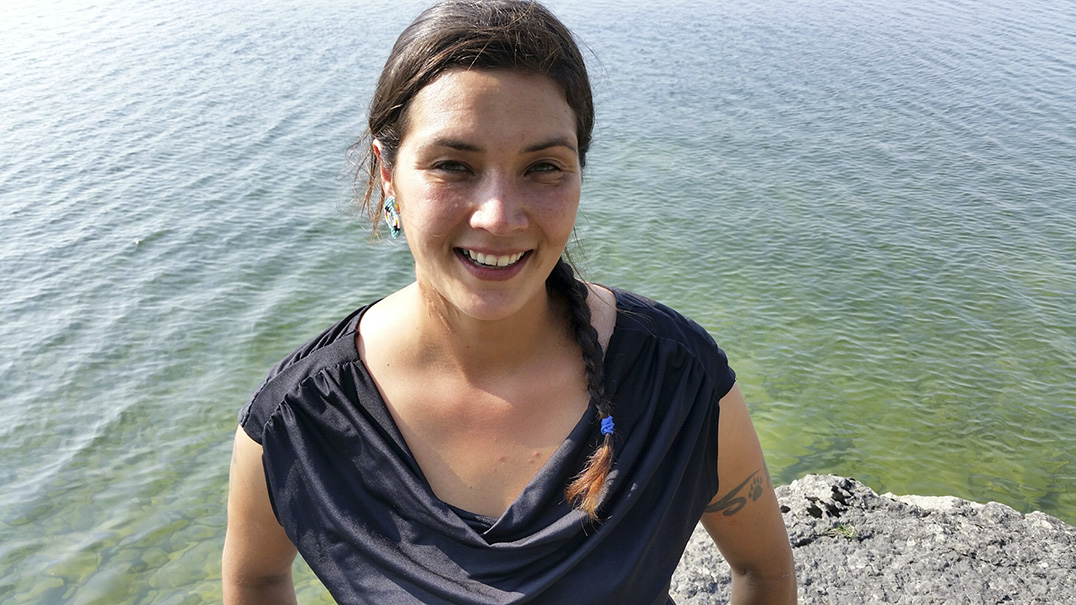EDITOR’S NOTE: The three candidates for chief in the September 12 election are Linda Debassige, G’Mewin Migwans and Martin Debassige. Incumbent Chief Joe Hare did not let his name stand, making this election the first in a quarter century that will see a chief that has not held the position before elected.
There are 18 candidates standing for the position of band councillor and they include Andrea Panamick, Marko Debassige, Debbie Corbiere-Debassige, Ray Corbiere, Brenda Roy, Forry Hare, Andrew M. Corbiere, Andrea McGraw, Charlene Recollet, Tiffany Recollet, Thomas Hare, Mark Debassige, Henry Panamick Sr., Brian Bisson, Sam Debassige, Bev Roy-Carter, Basil Panamick and Debbie Ense.
The following article is from an interview with candidate Linda Debassige, candidates Marvin Debassige and G’Mewin Migwans were not available for interview by press time Monday.
Chief Electoral Officer Dan Simon noted that the official poll will take place on September 12, but that there was a special advance poll on September 5 during the annual M’Chigeeng Traditional Powwow and that electors are also able to avail themselves of a mail-in ballot. “But the mail-in ballot has to be received before September 12,” he said.
In order to vote, electors must be on the list of registered voters and have identification on hand. “I know most of the people on the list,” said Mr. Simon, “but there are some people from off reserve that I might not know to see them.” The electoral officer noted that the necessary identification includes most of the usual items, band card, driver’s licence, birth certificate or passport.
Linda Debassige

Linda Debassige has acquired many skills throughout her scholastic and working careers and through her community work, but she said that she counts “listening” as being foremost among those attributes. That skill would seem to be a given for any politician, but Ms. Debassige noted that many people seem more interested in talking about their own points of view than engaging in active listening to the concerns and ideas of those around them.
Ms. Debassige, who graduated with honours from Confederation College’s Civil Engineering program in Thunder Bay, was born and raised in M’Chigeeng, the daughter of Mike and the late Pam (Winnie) Debassgie and is the mother of a 14-year-old son.
Ms. Debassige said that there are a number of approaches to the job of chief that she has garnered through her job and life experiences. “I have come to believe that it is important to focus on solutions instead of focussing entirely on the problem,” she said. “The first thing to do is gain an understanding of the problem and to work together to find a solution that will achieve the greatest success.”
She has had plenty of experience in putting that philosophy to work. When Ms. Debassige was first elected to council in 2013 she immediately became deeply “involved and active” in a number of portfolios including the audit and finance, governance and human resources, membership, lands management steering committee, UCCM Police Commission, UCCM Land Claims steering committee, the community comprehensive plan steering committee and the She’ndwin Teg Gaming Commission as an alternate.
But her involvement in community service and committees has extended well beyond those positions directly related to her work as a M’Chigeeng band councillor at both the local and regional levels.
“My experience in these areas has helped me to gain a solid understanding of where M’Chigeeng First Nation is today and what needs to be continued to ensure positive movement in the future,” she said. But Ms. Debassige noted that does not mean revolutionary change is needed. “I promise not to dismantle everything our past leaders have worked hard to establish,” she said, stressing the importance of continuity in community planning. “There is a lot of capacity that has been built over the years that might need to be tweeked, but not changed in the absolute.”
Areas that she feels could stand to see some improvement include: community consultation and participation (a quarterly community meeting would assist with opening better lines of communication); community safety, “it is very important that chief and council continue to address the needs of the community in terms of safety and security; economic development, “it is very important we support new ideas and revenue generation initiatives using the skills and knowledge present in our own community (the proposed grocery store and continued development in the energy sector are key examples she cites); job creation, accessibility and fair opportunity will require support in attaining the training and certifications necessary to access job opportunities (too many of which are beginning to be outsourced to non-band members and outside contractors); housing, which will require not only lobbying efforts aimed at the provincial and federal levels, but also exploration of innovative and and inventive approaches; infrastructure and public works; an open and transparent chief and council, working for the best interests of the community as a whole and with regularly posted minutes; language, which Ms. Debassige notes is fundamental to ensuring the Anishinaabe legacy continues without assimilation far into the future; and aboriginal and treaty rights, where education of the next generation of treaty rights will help instill “pride, identity and to have our young people grow to continue the fight for our people.”
Ms. Debassige said that she believes that a chief and council must look ahead and make decisions that are in the best interests of the community as a whole.





